For four days in March, a sanctuary for queer and trans people sprung up in Tunisia — a country where being gay is illegal. Mawjoudin Queer Film Festival, in its second year, differs significantly from other film festivals: some participants wear badges that read “No Photos;” attendees were invited through a private Facebook page and were told not to geo-tag locations on social media; venues were revealed only in the final days before the festival.
The event, put on by the nongovernmental organization Mawjoudin — “we exist” in Arabic — included film screenings, workshops, a photo exhibit, lectures and, of course, an after-party. The festival is just one element of the organization’s mission, which includes advocating for the repeal of Article 230 (a law created during the French colonial period that criminalized homosexuality and still stands), and defending the rights of the “marginalized, stigmatized and criminalized,” in the words of Cyrine Hammemi, 24, the festival’s regional coordinator.
To complicate things further, in Tunisia, trans people are not addressed at all in legal terms, and are lumped together in the otherness that is considered gayness. However, the gay community in Tunisia has re-appropriated the once derogatory term “queer,” and taken ownership of it as a blanket term for L.G.B.T.Q. “We use ‘queer’ quite often not only as Mawjoudin but every L.G.B.T.Q.I.++ organization,” Ms. Hammemi said. “We encourage people to use it, actually.”
“We are spreading the message of tolerance and acceptance, and that it is normal to be queer, to be different; and we have the right, of course, to exist,” said Ms. Hammemi, who identifies as queer.
There were two criteria for inclusion in the festival: Films had to have been created by someone who identifies as B.I.P.O.C. (Black, Indigenous and People of Color), or had actors or directors who are citizens of, in Ms. Hammemi’s words, “south country” nations — meaning those from Africa, Latin America, the Middle East or Asia. “The idea is to create a platform of exchange, and of course to see ourselves, to project stories that are relatable,” Ms. Hammemi said. “Not only the social struggle, but also the political and the economical, and the intersection of it.”
Among the films screened were a short film about a young boy in foster care who is rejected by new foster parents over his nonnormative behavior (“The Orphan,” a Brazilian short by Carolina Markowicz); a silent gay love story from India (“Sisak,” directed by Faraz Arif Ansari, who holds acting workshops for the Indian trans community so that he can cast a trans actor in a feature film); a Tunisian documentary short following three trans women as they prepare to go out on the town, an escape from their everyday, socially constricted lives (“Travestie,” by the Tunisian director Safoin Abdelali); and, to close the festival, a documentary about a Syrian refugee living in Turkey who attempts to get a visa through the Mr. Gay World pageant (“Mr. Gay Syria,” by the Turkish director Ayse Toprak).
The festival strives to balance celebrating queer and trans identity with educational efforts around safety; panels were held on subjects like “Self-Doxxing Training” and “Digital Hygiene and Risk.” Other panels were more joyous, like “Decolonize the Dancefloor,” a visual history lesson of dance styles that originated in the gay community.
For participants, life at the festival stood in stark contrast to the one just outside, full of caution and fear. Achraf, a performance artist from Tunisia, pointed out that a police vehicle had been parked outside one of the venues all day. (As with many participants, he declined to give his full name because of safety concerns.)
Though organizers are hopeful for progress in their country, the challenges facing the L.G.B.T.Q. community here and elsewhere remained clear.
At the after-party, Talel, 20, a Tunisian local, was beaming watching the crowd dancing freely beneath the multicolored lights “I feel so happy,” he said, “it’s my first gay party.” In Tunis? “Ever.”
Here, some of the participants and attendees share their thoughts on the festival (a new one is being planned for next year) and the future for L.G.B.T.Q. rights in Tunisia.
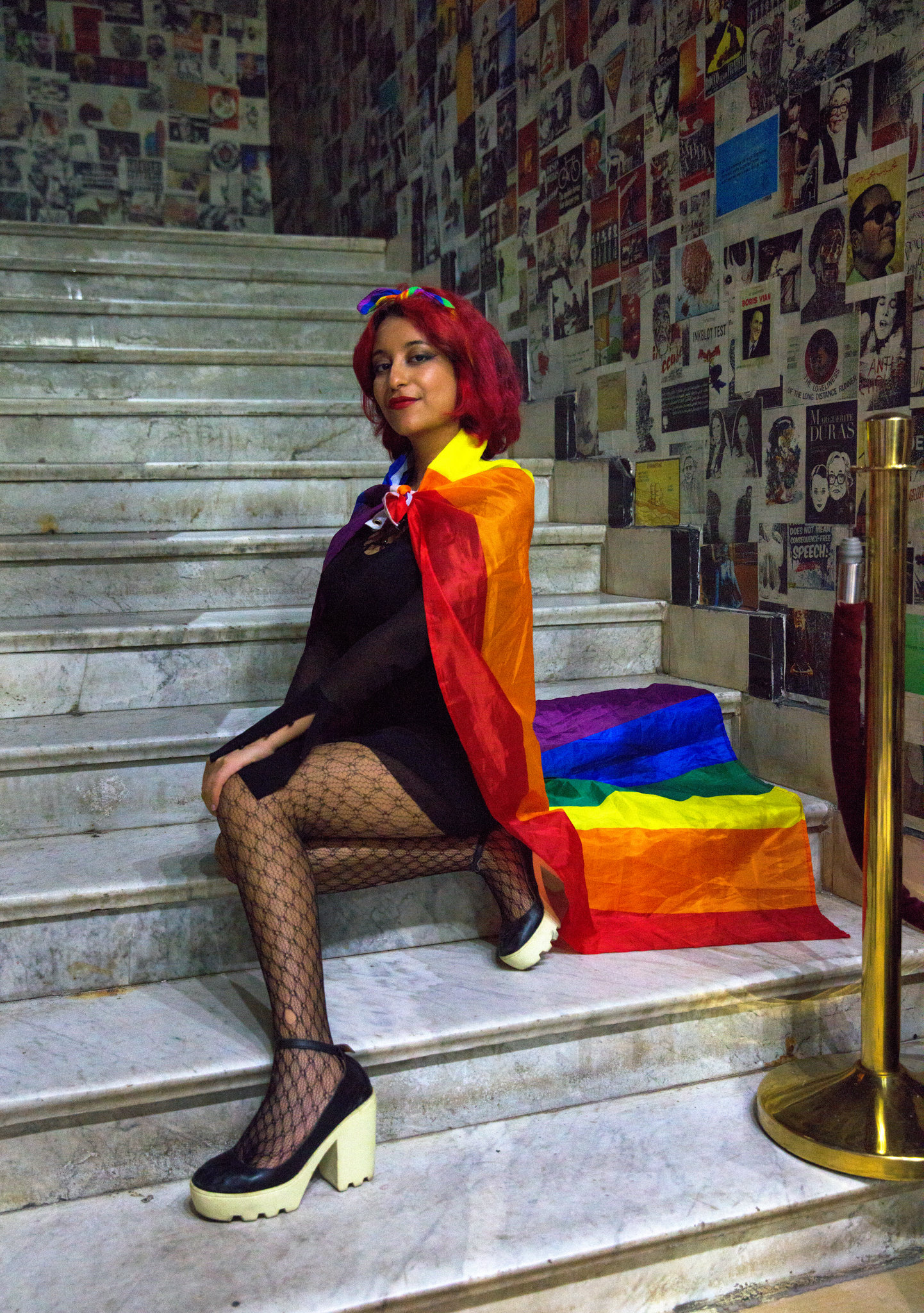
Azza Bouhlila, 20, is a Tunisian resident who said she felt a sense of safety and comfort: “I felt like I could be myself, without having to fake anything and no one would judge me or talk to me inappropriately.” She is optimistic for the social progress of Tunisia as a whole. “The L.G.B.T.Q.I.++ community in Tunis is gaining visibility and space with time,” she said. “People are slowly adapting and adjusting themselves. I have so much faith in the future generations and by the end of the day, love will, hopefully, win.”
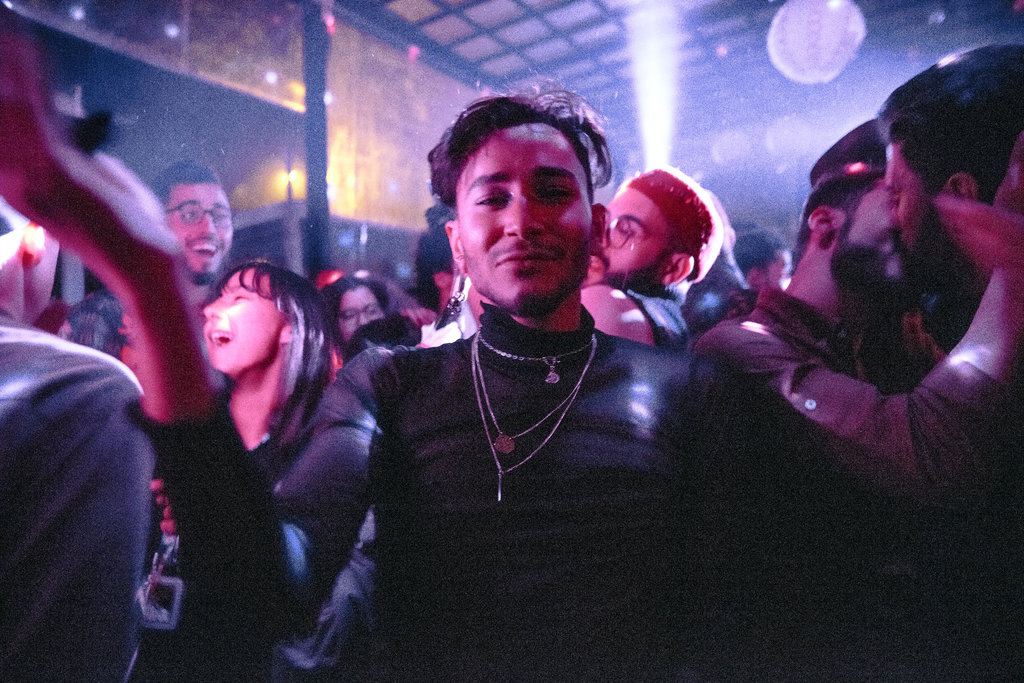
Ash McQueer, 24, who identifies as queer transfeminine non-binary (and uses the pronoun “they”), said that the festival “means a family gathering for me. It’s a chance to meet friends and your chosen family. It’s a chance to feel belonged and loved, a chance to express yourself freely and not be afraid of the consequences.” McQueer said they don’t have the privilege of “passing” for cisgender, and this essentially outed them unwillingly. “As a queer person living in a heteronormative patriarchal society, I don’t feel safe at all. I get stared at every single day, people threaten me, insult me. I think they feel insecure when they see someone like me,” they said. “But we are stronger than that, and we will not surrender.”
In spite of those concerns, McQueer has a positive outlook: “I think we are doing a great job and if we continue this way we will be achieving some of our rights soon, and if we don’t, at least we will be making a statement and letting everyone know that we are here, we are queer, and we will never disappear.”
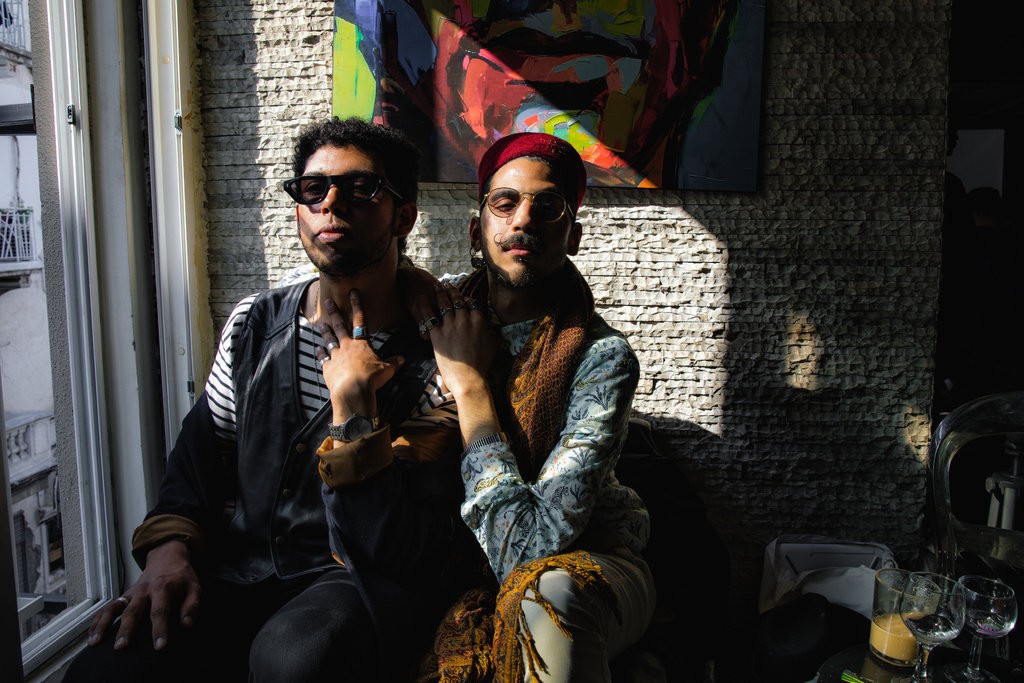
At left: Amine, 25, who identifies as a non-binary “artivist queer” (and also uses “they”), was invited by Mawjoudin from Morocco. Their performance art piece, “Farida,” is “a political act” that addresses colonialism, misogyny and religious objections to non-binary identification, using movement, spoken word, Moroccan music and imagery (including representations of the hammam, a traditional public steam bath) — with the goal of finding the juncture of queerness and their heritage. “It’s necessary that the queer community seeks the identity of their own country,” they said.
At right: Achraf, 25, is a self-described drag queen whose drag mother — that is, the person he identifies as his close mentor in the drag community — fled Tunisia because of persecution under Article 230. His performance includes elaborate female and male costuming, as well as traditional Tunisian dance elements. “When you’re out there, you stop being a man, or stop being a woman,” he said. “When I took off my costume, it was the fight between me, my true personality, and our traditions” — the conflict, in essence, is ever-present.
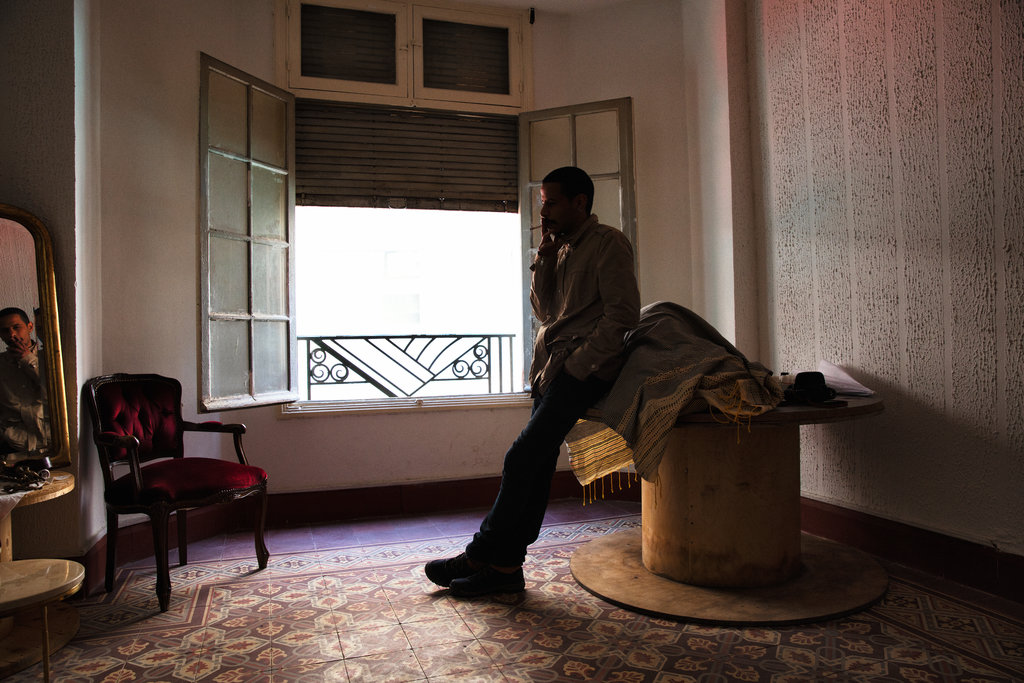
Tarek Sardi, 25, is a Tunisian film director whose short film “To Starboard, I Vomit” opened the festival; Mr. Sardi described it as a “vomit in the face of the patriarchy.” The film, shot entirely in one room, centers on an exposed love triangle between a woman, her husband and another man, the woman’s ex-lover who has also been a lover to the husband. His intention was to address Tunisian stereotypes: “For me, my goal, and I hope I will succeed in doing this at least once, is to screen it out of a safe context with people which include the homophobic majority, and that people start de-stereotyping and destigmatizing the L.G.B.T.Q. community.”
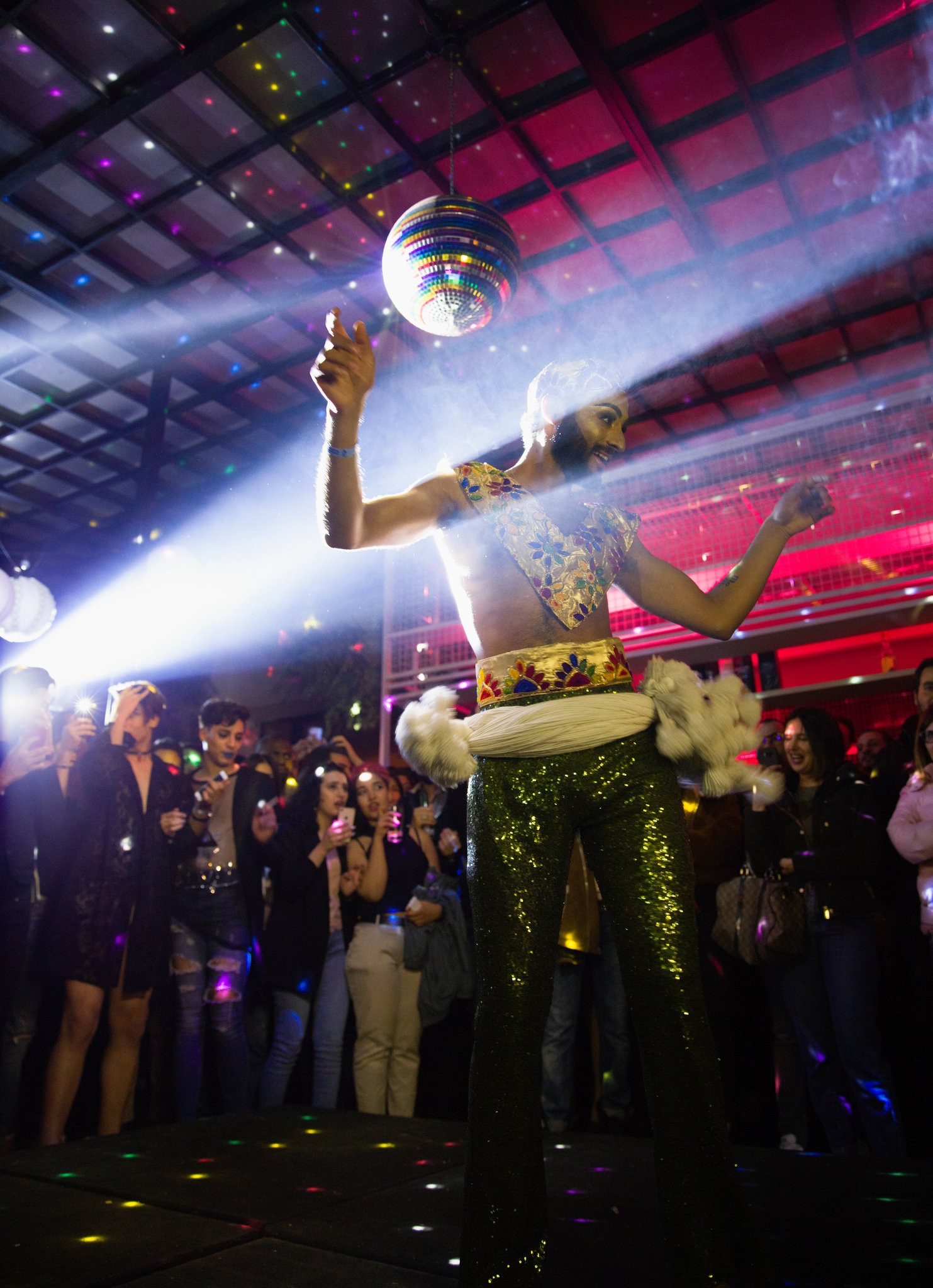
Mohammed Issaoui, 26, is a Tunisian dancer who performed at the festival after-party. He describes his performance as “a character who we see evolve on stage, we see him fight to make his first movements and to claim his identity.” The show, which pays homage to the tradition of Tunisian Bedouin dancing, “aims, in its festive nature, to entertain and spread joy, but above all, to ask the primordial questions about the body, about popular art, about identity and the expression of gender.”
Mr. Issaoui had an extremely positive experience at the festival, calling it a “a spark, or better yet, a shining light. One more space to express oneself, to assert oneself, to take a step forward.”
by Noa Avishag Schnall
Source – The New York Times







